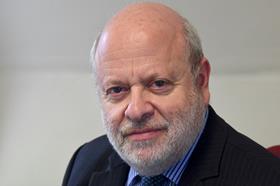The UN Cop26 climate summit which is now under way in Glasgow will doubtless see its fair share of protests. There are lawyers attending, and legal events around the conference.

I do not imagine that lawyers will be gluing themselves to the roads. Rather, the event highlights a battle – lit by the fires caused by climate change, if you want – which is ongoing in trying to define the role of lawyers as so-called ‘professional enablers’, a term intended to damage us.
The ‘professional enabler’ name is gaining in currency all the time, to the point where the forces opposing us are gaining in strength and appear overwhelming. I will mention some very recent developments below.
The slur is intended to cover our part in enabling clients’ tax avoidance as in the recent Pandora Papers (so reducing the amounts available to schools and hospitals), in silencing critics of foreign billionaires (through their use of London courts in bringing law suits which their opponents do not have the resources to oppose) and, very sharply at present, in climate change (through our work on behalf of those whose actions damage the climate).
We find ourselves barricading ourselves against the charges, like citizens of Paris throwing our furniture out of the window into the street to build a barrier which will not allow the new forces to pass. But the new forces’ ideas just blast through our old beds and cupboards and overcome us.
So we throw out into the street the following principles which have served us well in the past, and seem to us still completely sound and impregnable. I have used climate change as the example, but you can substitute tax avoidance or any of the other ‘professional enabler’ topics:
‘Everyone has a right to representation, including those who damage the planet!’
‘No lawyer should be identified with their client’s interest!’
‘Lawyers should not be harassed and intimidated for doing what is lawful for their clients!’
‘We are in a transitional phase where we still need fossil fuels, and those who produce them need legal representation!’
But the cannon of the new forces just blasts its way through every obstacle we put in its way, with the apparently unanswerable:
‘You are damaging the climate through the work that you undertake for your clients!’
The Law Society’s climate change resolution, launched last week, foresees this issue, by offering to provide support and guidance to the profession on how to act in these circumstances.
One of the Law Society’s first tasks will be to tackle the thorny issue of ‘professional enablement’, of course to ensure that the role of the profession is understood, protected and promoted, so as to deflect the slur. The task can only be achieved by acknowledging the power of the forces training their guns on us, and not by denying their existence.
Here are two recent and global examples. Following the publication of the Pandora Papers last month, a bipartisan bill was proposed in the US Congress to deal with the fallout. The bill is called the Establishing New Authorities for Business Laundering and Enabling Risks to Security (Enablers) Act. The proposers went to all that linguistic trouble just to be sure that it would be called the Enablers Act. And of course those who are caught up by the measures it wants extended to new groups are those it wants to be sure are labelled as professional enablers, including…lawyers.
There was also a story last week about the well-known consulting firm McKinsey, which advises many of the biggest corporate polluters around the world. More than 1,100 of its employees have signed an open letter to the firm’s top partners, urging them to disclose how much carbon their clients emit into the atmosphere. Several employees have since resigned.
As with many law firms, McKinsey’s own carbon footprint is minuscule compared with that of some of the companies it advises. And again in echoes of McKinsey, some of the big law firms’ junior solicitors do not want to work with clients which damage the planet.
It is time for a public conversation. Otherwise, we will find ourselves stuck with the label, with unforeseeable consequences related to our future regulation.
Of course, the Law Society’s core work of fighting against unsustainable legal aid pay rates and the catastrophic state of the courts, as well as for the continuation of the Solicitors Indemnity Fund (SIF), will continue.
But the future reputation of the profession is at stake now across a range of professional issues, where lawyers are very much identified with their clients’ interests, and where some even question the right of client representation, and it is the duty of the Law Society finally to step up and support the profession with new ideas which will protect us against unjustified attack.
Jonathan Goldsmith is Law Society Council member for EU matters and a former secretary general of the Council of Bars and Law Societies of Europe. All views expressed are personal and are not made in his capacity as a Law Society Council member, nor on behalf of the Law Society































2 Readers' comments